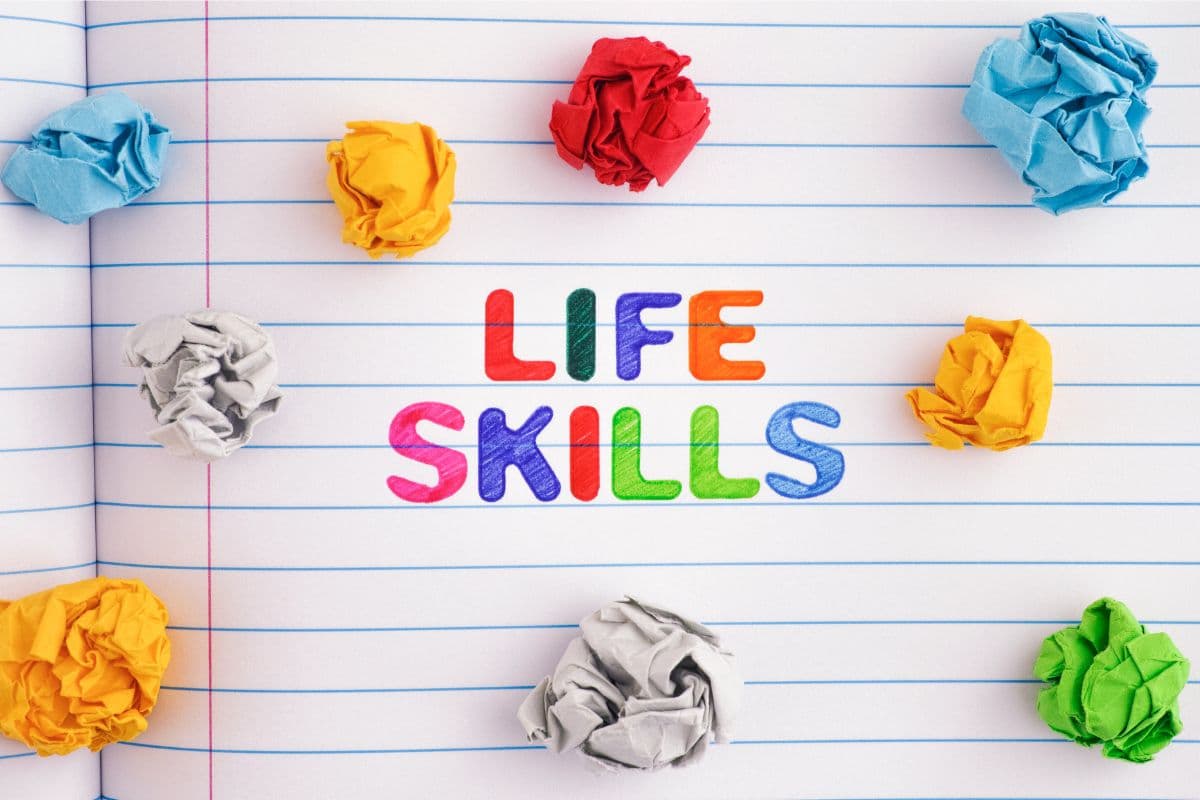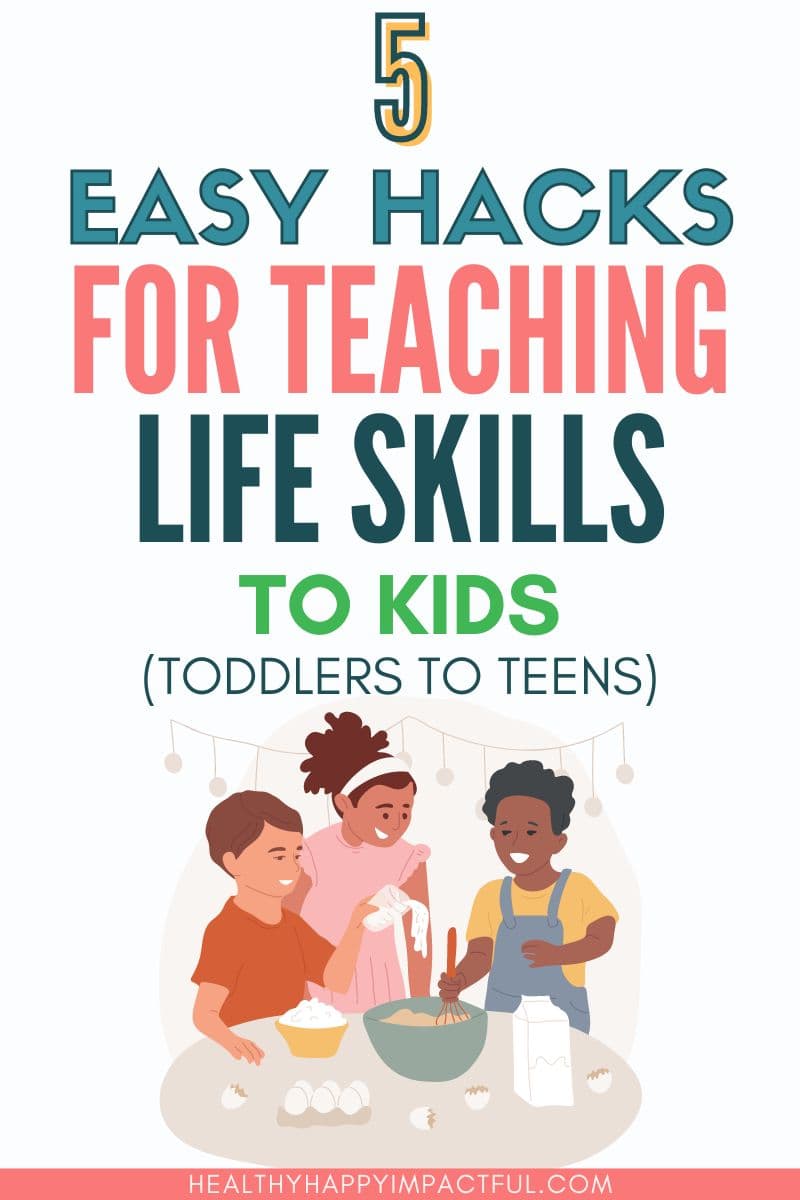5 Hacks For Teaching Kids Life Skills Without Losing Your Mind
This week, we tackled the shoe-tying lesson with our kids. Again.
From learning to tie shoes to making good decisions, there’s a lot to teach our kids. And it’s an ongoing journey that requires patience and repetition.
How can we impart these skills while staying sane?

Discover five practical hacks for teaching life skills. They nurture independence and confidence in our children as they grow.
This post contains affiliate links. See our disclaimer for more.

Would you like to save this idea?
What Are Life Skills?
Life skills are what we need to navigate the challenges and responsibilities of life.
They encompass a wide range of things, including:
- practical skills such as cooking and cleaning
- time and money management
- personal hygiene habits
- social and emotional skills (effective communication, problem-solving, and decision-making)
- emotional regulation and stress management
Make It Easier: 5 Hacks For Teaching Life Skills
1. Make A List Of Steps
Making a list can be a powerful tool when our kids learn new skills.
- Lists break down complex tasks into manageable, actionable steps.
- They provide a visual guide to help kids stay focused (and less frustrated).
- Creating lists empowers kids to take ownership of tasks.
- Checking off completed steps provides a sense of accomplishment and confidence.
The added bonus? You’ll find yourself repeating instructions less often. It preserves sanity by offering clear written guidance.
Explore our ready-to-use, free printable checklists:
Pro Tip: Use images on lists for young children. Or take pictures of them while they complete each step.
2. Read A Story
Books are a lifesaver for me as a mom. No lectures needed—just open a book, snuggle up, and read. And if needed, read it again!

Here are great options to teach a variety of skills and ages:
- How To Tie Your Shoes
- Teach Your Dragon Good Hygiene (There are 68 skill-teaching books in this series)
- My Magical Choices
- How To Be A Person
Listen To A Read Aloud Book For Habits & Routine
3. Play A Game
Boost motivation and improve specific life skills by using a game.
- Team-Building Activities: Choose games that require players to work together toward a common goal. They encourage teamwork, communication, and problem-solving.
- Turn-Taking Games: These games teach patience, fairness, and consideration. Encourage waiting and listening while playing. Examples: Candy Land, Uno, Sorry!
- Communication Games: Games like Charades, Pictionary, Fishbowl, or Telephone require players to communicate to succeed.
- Social-Cues & Empathy Games: Role-playing games foster empathy by exploring different perspectives. Social cue games raise awareness of nonverbal communication. Examples: Simon Says, Red Light, Green Light, and Two Truths and a Lie.
- Problem-Solving Games: Examples include Escape Room board games, Ticket to Ride, and any type of puzzle.
- Chore Games: Turn chores into a game to make them more enjoyable and less burdensome (for both you and your kids).
My favorite trick to motivate my kids with chores is using the time-lapse mode on my phone to record them in action. Then, as a fun reward, they get to watch the fast-forward version of their hard work!
4. Use Real World Examples

Integrate real-world examples into teaching skills whenever possible. This approach helps children understand that what they’re learning applies to life.
Examples include:
- Make a grocery list and set a budget before going shopping.
- Make a plan to earn money and save for a desired toy.
- Involve kids in daily meal prep.
- Assign age-appropriate household chores.
- Help kids use watches, timers, and planners for daily time management practice.
- Engage kids in volunteer work or assisting neighbors to teach the value of helping others.
5. Teach By Example
“Our children are watching us live, and what we are shouts louder than anything we can say.”
Wilferd Peterson
Children learn by observing and imitating those around them.
We provide our kids with concrete examples. We model every time we navigate a challenge or demonstrate effective communication, problem-solving, or resiliency.
Parenting is challenging, and perfection is not attainable. It’s okay to make mistakes along the way. Keep showing up and doing your best, knowing that your efforts are more than enough.
Related: Funny Parenting Memes
What’s Next?
Get helpful family-friendly ideas straight to your inbox through the Family Connections Newsletter. Sign up below to get started!

